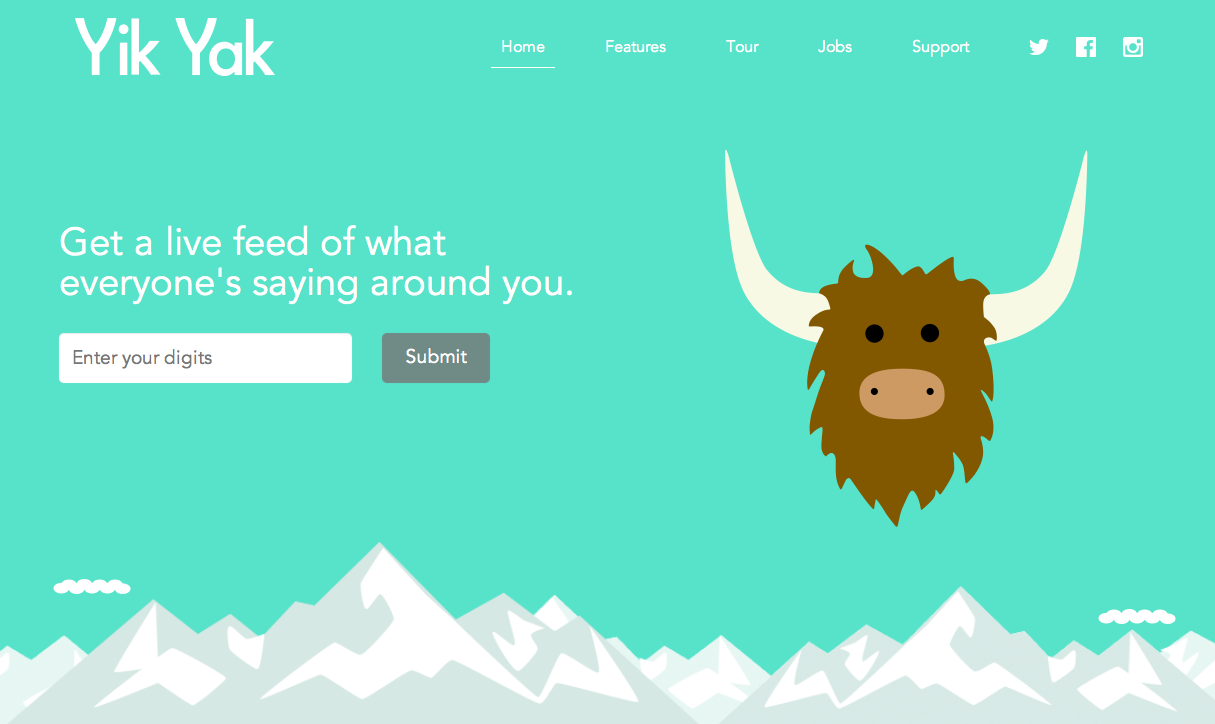This fall, campus has found itself in the grips of yet another new social media app: Yik Yak.
Yik Yak is an anonymous, location-based mobile app that functions like a virtual billboard. Users can post anything they can write in 200 characters or less. Other Yik Yak users, within a given radius, can then see this post in their feed. They can respond with comments, likes or dislikes. However, everything is completely anonymous.With sufficient communal disapproval, a post will be automatically deleted, but there is no punishment that is in any way tied to anyone’s public identity. Consequently, the cost of saying stupid or offensive things is quite low. So people do.
Although I don’t want people to post these things, my intent here isn’t to focus on Yik Yak’s downsides. It’s to provide a general understanding of Yik Yak and why it might appeal to us.
As a young whippersnapper myself, I understand the lure of Yik Yak.
Facebook, the dominant social networking site of our time, has largely become a sterile projection of our best selves. There is a growing awareness nowadays, especially amongst my generation, that anything you say online can and will follow you for the rest of your life. Technology has allowed us to collect, store and analyze massive amounts of data about every aspect of our lives in a way that hasn’t been possible before. Is there value in learning how to forget?
Internet behemoths like Facebook and Google make their money from advertising. Advertising is a lot more effective when it shows products to people who are more likely to buy them. Knowing who we are tells advertisers what we might buy. Thus, there is massive financial incentive in connecting our online behaviors to our offline selves.
In the same manner, Snapchat was perhaps the first popular social media platform to try to protect users’ futures from themselves. Snapchat allows users to send photos and videos to their friends that are automatically deleted upon viewing. Snapchatters know who their audience is and when their audience has access to their personal content. Yik Yak is an entirely different animal than Snapchat, but they are the same in one critical way: they are a response to the increasing unification of our online and offline selves.
Of course, we can’t deny that we care deeply about what people think of us.
On Facebook, we are asked to embrace a single public identity for all of our acquaintances that will be consistent with who we are later in life. In reality, we constantly adapt our behavior to situations depending on things like audience, relationships, status and expectations. We don’t act the same way with Grandma, our boss and our friends. Our identity is fundamentally flexible and entwined with our environment.
I don’t want to have a single rigid, static identity; I want the freedom to change from situation to situation.
I think Yik Yak appeals to us because it lets us be ourselves on social media without compromising our ability to be ourselves in other situations. I don’t know if Yik Yak is the best way to find this separation, but maybe this idea will make you curious enough to log in andfind out.



